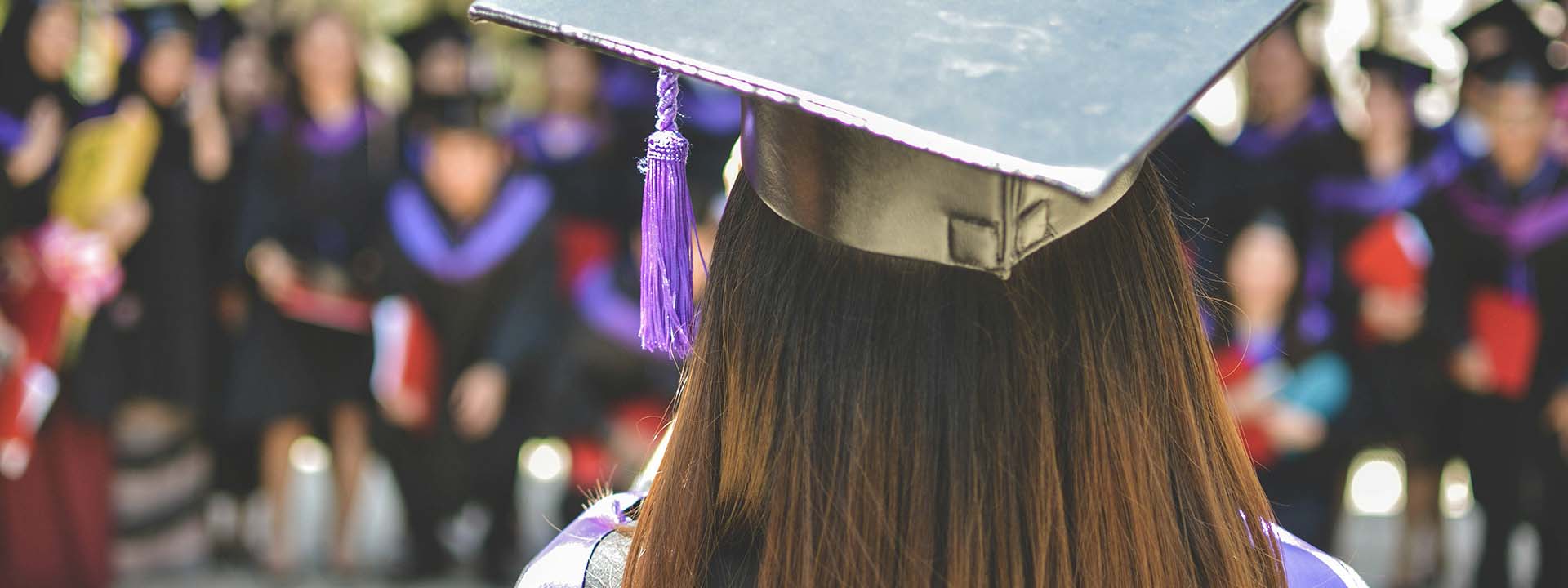Nestled in the Atlantic off the Portuguese coast, Madeira offers more than stunning landscapes and a mild climate—it also offers exceptional international schooling options for globally minded families.
Though the island hosts just two international schools, they stand out for personalized learning with small class sizes, strong language instruction, and globally recognized curricula. This gives foreign residents and local families access to excellent education without needing to relocate to mainland Portugal.
In this article, we’ll take a closer look at Portugal’s education system and where residents of the island can send their kids.
You’ll also learn more about:

Choosing the right school is one of a family’s most important decisions when relocating abroad. For parents moving to the island of Madeira, this often means exploring international schools that combine quality education with a supportive, multicultural environment.
However, Madeira’s educational institutions only make up a fraction of all the international schools in Portugal, as the island currently only has two main international schools. Both are located in Funchal, the island’s capital, making them accessible to most expatriate families who settle in or near the city.
For context into Portugal’s education system, our Global Intelligence Unit ranked Portugal 25th in its Global Education Report. It noted that “in 2023, more than 6 million students studied abroad, and this figure is projected to exceed 10 million by 2030.”
International School of Madeira (ISM)

The International School of Madeira offers a bilingual education that blends the British curriculum with Portuguese language learning. It follows the highly regarded Cambridge International Early Years syllabus (from ages 3-2) and the Cambridge Primary program (for children aged 6 to 10).
From the early years, children are introduced to both English and Portuguese, with teaching gradually balancing the two as they progress.
ISM focuses on small class sizes, ensuring each student receives close attention and support in their academic journey.
Its approach is particularly well-suited to families seeking strong academic foundations while helping their children integrate into both local and international communities in Madeira.
International Sharing School of Madeira (ISSM)

The International Sharing School of Madeira offers the most comprehensive international curriculum on the island and is open to students between the ages of three and 18.
Fully accredited by the International Baccalaureate Organization, ISSM provides all three stages of the IB program: the Primary Years Programme (PYP), the Middle Years Programme (MYP), and the Diploma Programme (DP).
This ensures continuity in education from early childhood through to pre-university level. ISSM places a strong emphasis on innovation, collaboration, and multiculturalism.
Its classrooms and learning environments are designed to encourage student interaction, problem-solving, and creativity.
Other Options: Escola da APEL

While Madeira is home to two dedicated international schools, families should also be aware of Escola da APEL. Located in Funchal, this Catholic secondary school is not an international school in the traditional sense. Its roots lie firmly in the Portuguese education system, and most of its students are local.
What sets APEL apart, however, is its certification as an IB World School, authorized to deliver the International Baccalaureate Diploma Programme (IB DP). This globally recognized two-year program is taught in English and prepares students to enter universities worldwide.
For expatriate families with older children, APEL may provide a middle ground: a Portuguese school environment enriched by an international curriculum at the upper-secondary level.
It does not offer the continuity of full international schooling from early years through graduation, but for students aiming at global higher education opportunities, the IB DP at APEL can be an attractive alternative.
For the 2025–2026 academic year, the International School of Madeira charges annual tuition fees ranging from €5,300 for nursery (ages 3 to 4) students to approximately €5,900 for Grade 4 pupils.
In comparison, ISSM charges €5,880 for ages 3 to 4 and between €7,110 and €8,500 for Grades 1 to 5. However, at ISSM, annual tuition for the 2025–2026 school year varies significantly by program.
For example, the Middle Years (from Grades 6 to 10) cost between €9,120 and €11,280 per year, while the Diploma Programme (from Grades 11 to 12) costs between €12,520 and €13,140 per year.
New students pay a one-time enrolment fee of €600, and returning students have a renewal fee of €300. While the fees might seem higher, they do include supplies such as books, stationery, and access to digital resources.

Families relocating to Madeira often weigh whether to enroll their children in the island’s public school system or opt for one of its international schools. Both options have advantages, but the right choice depends on a family’s priorities, length of stay, and the child’s future educational path.
Public schools in Madeira follow the Portuguese education system and are taught entirely in Portuguese. They are free to attend and provide a good standard of education, particularly at the primary level.
Enrolling children in public schools is often the preferred option for families planning long-term stays, as it accelerates language acquisition and integration into the local community. However, for children who arrive without Portuguese language skills, adapting can be challenging, especially at higher grade levels.
On the other hand, international schools offer instruction in English combined with Portuguese and follow internationally recognized curricula such as the British system or the International Baccalaureate (IB).
This makes them particularly suitable for expat families who move frequently, want continuity in their children’s education, or plan to study at a university abroad. The trade-off is cost: international schools in Madeira charge tuition fees, while public education is tuition-free.
For many families, the decision comes down to balance:
- Public schools are ideal for those committed to settling in Madeira and immersing their children in Portuguese culture.
- International schools are better suited to mobile families, prioritizing a global education, English instruction, and widely recognized worldwide qualifications.
Enrollment at Madeira’s international schools is relatively straightforward but can be competitive due to limited availability.
Both the International School of Madeira (ISM) and the International Sharing School of Madeira (ISSM) accept applications throughout the year, although families are encouraged to apply well in advance, especially for higher grades where spaces fill quickly.
Most schools require standard documentation, such as previous school records, identification documents, and proof of residence. Entrance interviews or assessments may also be part of the process, particularly for older children. Families should also expect to pay a one-time registration or enrollment fee, which varies between schools.
Because Madeira has only a small number of international institutions, early planning is essential. Families relocating with children should contact the schools before moving to the island to secure places and ensure a smooth transition into the new academic environment.

Other than on the island, mainland Portugal boasts several international schools that offer a variety of internationally recognized curricula, each offering different languages and curricula.
British Curriculum (IGCSE): British international schools typically follow the UK National Curriculum, which includes Key Stages 1 to 4 and prepares students for GCSEs and A-levels.
German curriculum: These international schools offer a comprehensive German curriculum and provide a traditional German education that strongly emphasizes academic rigor and cultural enrichment.
American curriculum: American schools provide a broad liberal arts education for Americans moving to Portugal, standardized testing (like SATs), and Advanced Placement (AP) courses to prepare students for college and university in the United States.
French curriculum: French international schools adhere to the French national curriculum, which includes the French Baccalauréat. This curriculum focuses on a rigorous academic program emphasizing humanities, sciences, and languages.
Religious schools: While most international schools in Portugal are secular, a handful maintain a religious affiliation or ethos. Some Catholic diocesan or private schools in Portugal have recently begun offering more English-language instruction and may be moving toward an international curriculum, especially in large cities like Lisbon and Porto.
Method schools: Portugal has a growing number of schools that adopt alternative pedagogical “methods” such as Montessori or Waldorf (Steiner). While these may not always carry the label “international school,” several offer bilingual (English-Portuguese) programs, multicultural communities, and sometimes even international accreditation.
Why choose Global Citizen Solutions for your Immigration Visa?
GLOBAL APPROACH BY LOCAL EXPERTS
- GCS has offices located across Portugal.
- Members of the US-Portugal and UK-Portugal Chambers of Commerce in Portugal, and the Investment Migration Council (IMC).
- Our expert team can help you throughout your journey to secure your Visa.
100% APPROVAL RATE
- Our successful track record in applications provides reassurance to applicants.
- We have helped clients from more than 35 countries secure residency in Portugal.
ALL-ENCOMPASSING SOLUTION
- With a single channel of communication, our approach ensures that you have complete clarity on your application.
- Our BeGlobal® Onboarding System allows for a total flow of information.
TRANSPARENCY AND PRIVACY
- Our pricing is clear and detailed, you will not face any hidden costs.
- All data is stored within a GDPR-compliant database on a secure SSL-encrypted server.


